If you’ve ever been to Greece and seen those stunning ancient landmarks like the Parthenon or The Temple of Zeus, you’ve probably stood there in awe as you tried to soak in all the beauty and magnificence. We’ve all heard tales of mighty gods, heroic battles, and epic literature, but beneath all those famous stories, there’s a treasure trove of lesser-known facts. Contributing to art, philosophy, politics, and so much more, Ancient Greece is worth taking a deeper dive into. Here are 40 intriguing facts about this incredibly influential time.
1. The Original Olympics Were A Religious Affair
The Olympic Games, held every four years in Olympia from 776 B.C., were not just a display of athleticism and talent, but it was actually a significant religious event dedicated to the god Zeus. In fact, a gigantic statue of Zeus at Olympia was one of the Seven Wonders of the Ancient World. Unlike today, the original games only had one event: a short sprint. Additionally, only free-born Greek males could compete - and they did so in the nude.
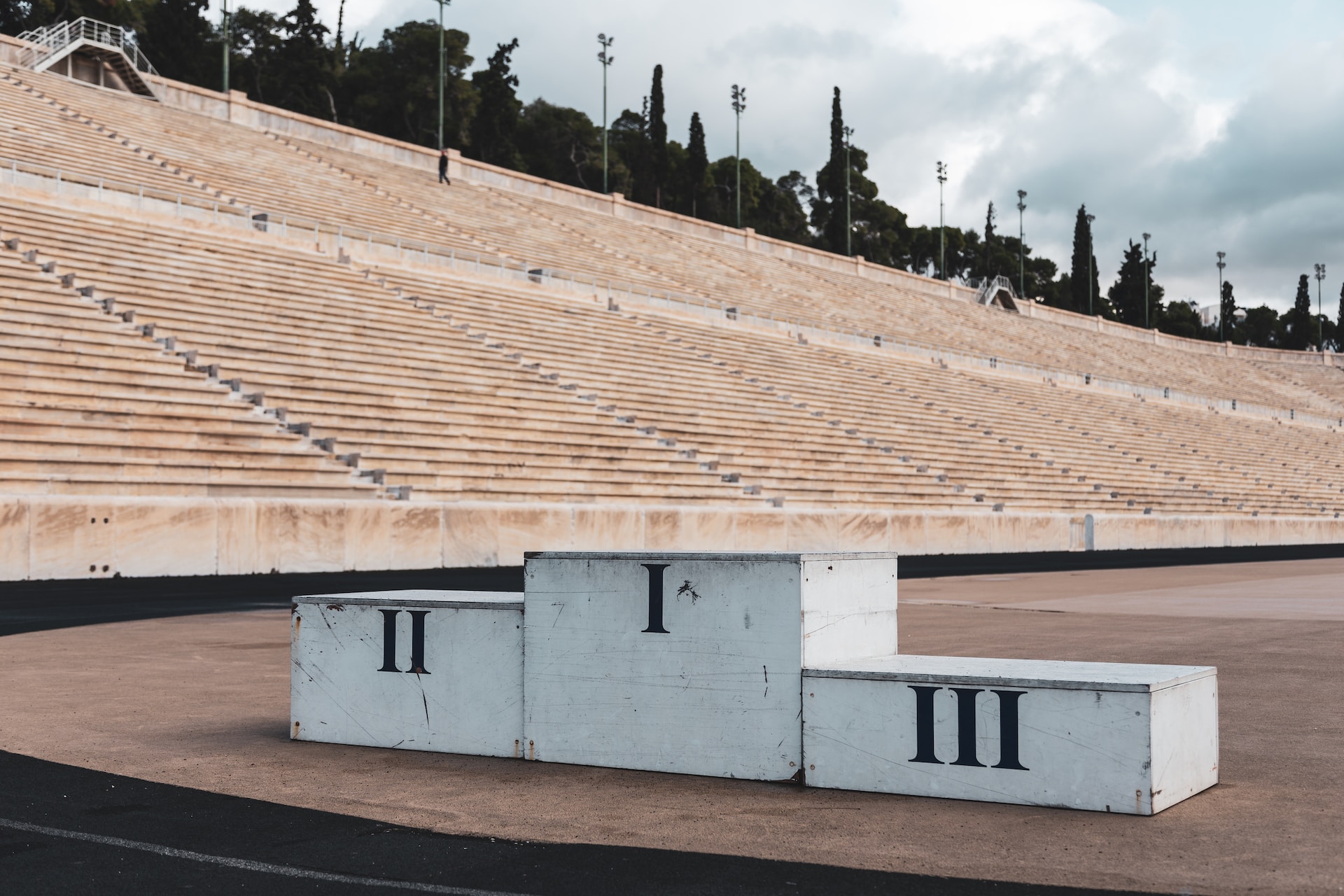 Photo by Florian Schmetz on Unsplash
Photo by Florian Schmetz on Unsplash
2. Greeks Invented Vending Machines
Long before candy bars and sodas, the first vending machine was designed by Hero of Alexandria in the 1st century AD. Now that’s a long time ago! But instead of the usual items you’d find in today’s world, back then, it dispensed just holy water in Egyptian temples. Patrons would place a coin inside, which then pushed down on a level and released the water. Impressive!
 Photo by Victoriano Izquierdo on Unsplash
Photo by Victoriano Izquierdo on Unsplash
3. The Fashionable Unibrow
In Ancient Greece, a unibrow (where two eyebrows meet in the middle) was considered a sign of intelligence and great beauty, especially for women. If you weren’t naturally blessed with a unibrow or had thick hair, many even went as far as using dark substances like soot to replicate one. It’s certainly a very different standard of beauty compared to today’s society.
 Photo by Ali Shoaee on Unsplash
Photo by Ali Shoaee on Unsplash
4. Professional Mourners
Funerals in Ancient Greece were grand and emotional events. It wasn’t unusual for families to hire professional female mourners to amplify their grieving. These women would sing lamentations, wail, and even scratch their faces to express sorrow. It’s certainly an interesting way to host a funeral.
 Photo by Mayron Oliveira on Unsplash
Photo by Mayron Oliveira on Unsplash
5. City-States and Their Weird Rules
Each Greek city-state, or Polis, had its own unique set of laws. In Sparta for instance, men weren’t considered full adults until the age of 30. Meanwhile over in Athens, if you didn’t vote (keep in mind women couldn’t), you could be branded an “idiot” which originally meant “private citizen”.
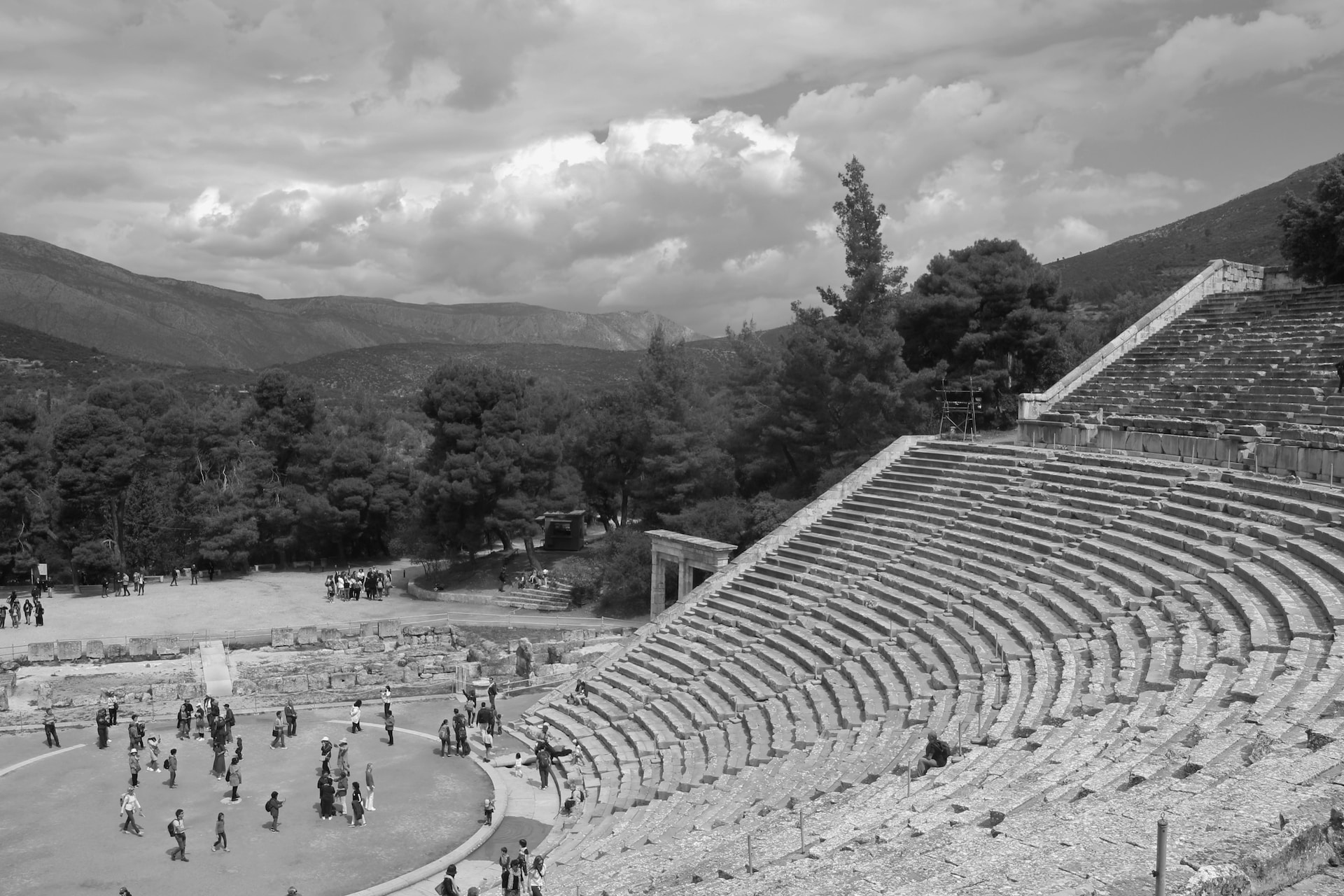 Photo by Uta Scholl on Unsplash
Photo by Uta Scholl on Unsplash
6. Antikythera Mechanism: The World’s First Computer
Discovered in a shipwreck off the island of Antikythera, this intricate device dates back to the 2nd century BC, and was used to predict celestial events. Made out of bronze, this device included plenty of gears, making it the world’s first analog computer. Its complexity wouldn’t be matched for at least another 1,000 years!
 Photo by Federica Galli on Unsplash
Photo by Federica Galli on Unsplash
7. Trial By Water
Here's a fact that's quite grim - an accused Athenian could opt for a trial by water instead of a jury. Trust us, it’s not as pleasant as it sounds. This meant plunging their hand into boiling water; if their hand emerged unscathed, they would be deemed innocent. Yeah, we’ll take the jury.
 Photo by Tingey Injury Law Firm on Unsplash
Photo by Tingey Injury Law Firm on Unsplash
8. Ancient Alarm Clock
The Greeks had an early version of an alarm clock; it was a water clock where water would drip from one container to another. When the container was full, it would tip over, dropping a metal ball onto a copper plate, creating a loud sound that would wake the sleeper. While it definitely needed refining, we can’t help but appreciate their innovation.
 Photo by CHUTTERSNAP on Unsplash
Photo by CHUTTERSNAP on Unsplash
9. Shared Flame
The flame at the ancient Olympic Games was ignited by the sun and then kept burning throughout the course of the games. This tradition is still upheld today, where the Olympic flame is ignited in Olympia and then relayed to the hosting city.
 Photo by Cullan Smith on Unsplash
Photo by Cullan Smith on Unsplash
10. Horses Were Luxuries
In the city-states, especially Athens, owning a horse was an extreme luxury. Due to the mountainous terrain and the difficulty in maintaining these animals, only the very wealthy could afford them. Sounds like riding one into town would immediately catapult your status.
 Photo by Fabian Burghardt on Unsplash
Photo by Fabian Burghardt on Unsplash
11. Dinner Parties with a Twist: Symposia
Symposia were essentially dinner parties for the elite men of society. But these weren’t your average gatherings. After a meal, attendees would lie on couches, drink wine, discuss philosophy, and enjoy music and poetry. It was also an event for political discourse. However, women, unless they were hired entertainers, weren't typically allowed.
 Photo by Toa Heftiba on Unsplash
Photo by Toa Heftiba on Unsplash
12. The Realities of Spartan Childhood
At just seven, Spartan boys were taken from their families to undergo the rigorous training of the “agoge”. This system molded them into fearsome warriors. They learned stealth (sometimes by stealing), endured physical hardship, and built unbreakable bonds with fellow warriors.
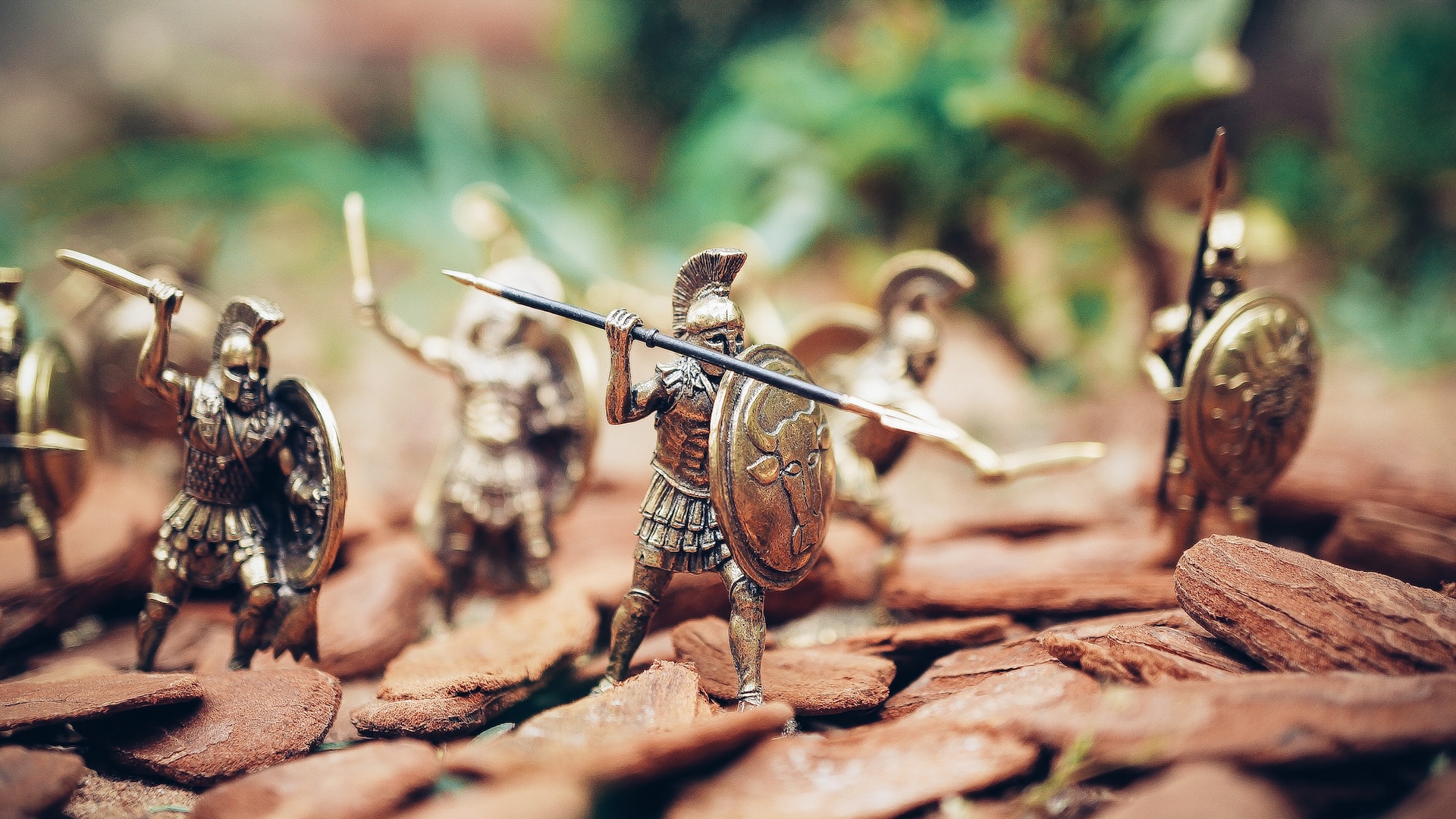 Photo by Jaime Spaniol on Unsplash
Photo by Jaime Spaniol on Unsplash
13. Peculiar Pottery: The Pythagorean Cup
This clever cup, named after the mathematician Pythagoras, was designed as a lesson against greed. If filled only to a certain level, it functioned as a normal cup. But if filled too much, a siphoning effect would empty the entire cup onto the drinker's lap.
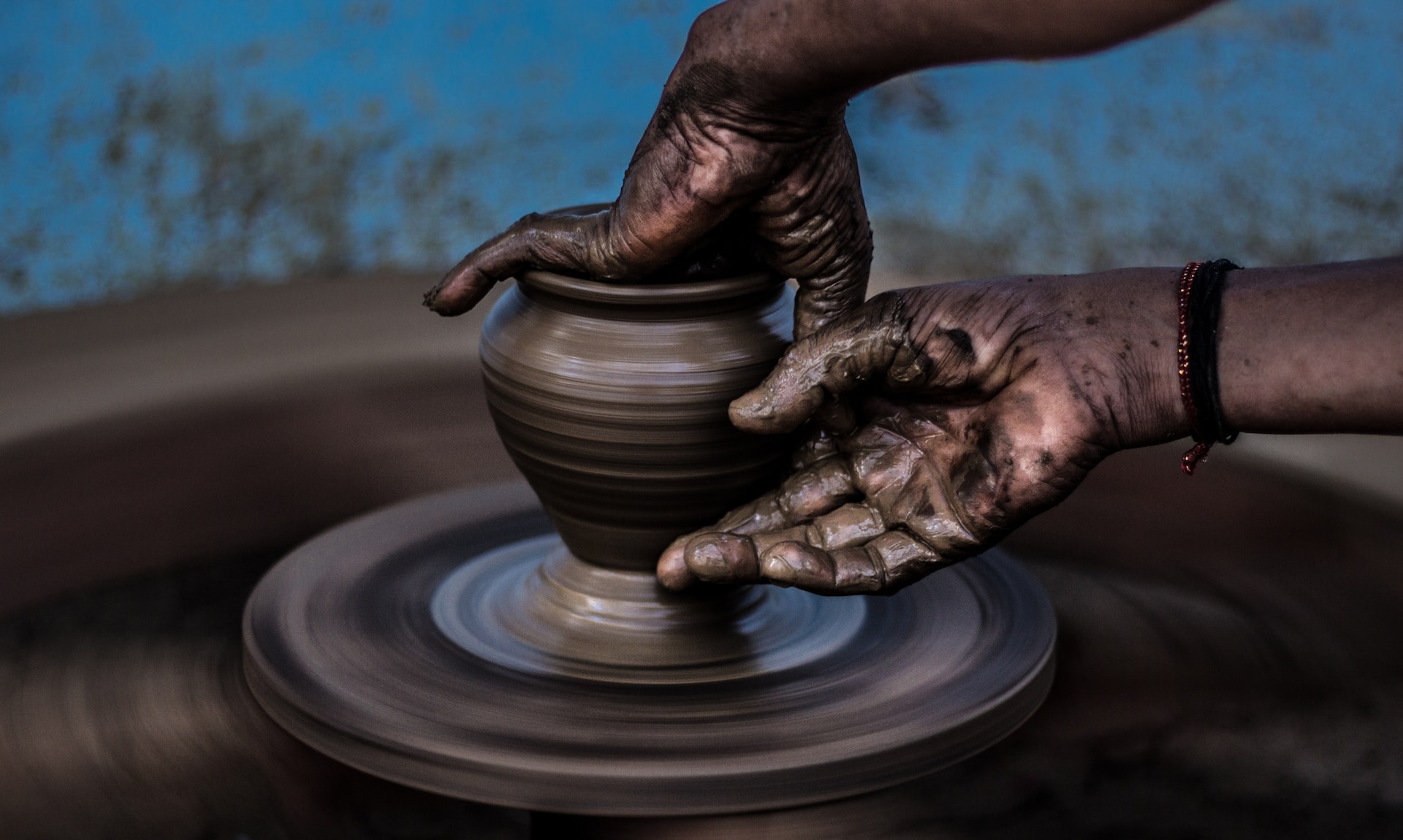 Photo by SwapnIl Dwivedi on Unsplash
Photo by SwapnIl Dwivedi on Unsplash
14. Pet Sacrifices
If you’re a dog lover, you might want to skip this point on the list. Athenians loved their pets, especially dogs. However, during certain religious ceremonies, they believed that sacrificing a beloved pet would please the gods more than offering a random, impersonal animal.
 Photo by Victor Grabarczyk on Unsplash
Photo by Victor Grabarczyk on Unsplash
15. The Theorikon Fund
The ancient Athenians believed in providing equal access to arts. The state had a special fund called the Theorikon to subsidize theater tickets for citizens who couldn't afford them, ensuring everyone could enjoy the cultural aspects of society. We can definitely get behind this one!
 Photo by Massimo Virgilio on Unsplash
Photo by Massimo Virgilio on Unsplash
16. A Society Without Paper
Before the advent of paper, Greeks wrote on papyrus scrolls imported from Egypt. However, these were expensive. For temporary notes, they used wax tablets which could be melted and reused. Sometimes it’s easy to forget how good we’ve got it.
 Photo by Sergiu Vălenaș on Unsplash
Photo by Sergiu Vălenaș on Unsplash
17. Greece: The Birthplace of Coins
Lydia, in ancient Greece, is credited with producing the first-ever coins around 600 B. C. These coins, made from electrum (a gold-silver alloy), standardized and simplified trade. We can only imagine how difficult it was to purchase and sell things before that.
 Photo by Amelia Spink on Unsplash
Photo by Amelia Spink on Unsplash
18. Musical Significance of the Lyre
The lyre, a stringed musical instrument, was not just for entertainment. It was used for various reasons like for education, religious ceremonies, and even as a symbol of status. Legends and myths say that the god Hermes crafted the first lyre from a tortoise shell.
 Photo by Jason Leung on Unsplash
Photo by Jason Leung on Unsplash
19. Cynosarges: The Gymnasium for the Non-Pure Athenians
In Athens, not all citizens were treated equally when it came to public training grounds. The Cynosarges gymnasium was specifically established for Athenians who were not of pure Athenian descent, particularly those with a non-Athenian parent. This segregation stems from the Athenian focus on pure lineage. However, Cynosarges produced its own renowned figures, the most famous being Diogenes the Cynic, a philosopher who often challenged societal norms.
 Photo by Kurt Liebhaeuser on Unsplash
Photo by Kurt Liebhaeuser on Unsplash
20. The Importance of Salt
Salt and spices, though very common ingredients in our kitchens today, were incredibly important in the days of Ancient Greece. Their roles extended far beyond flavouring food, they significantly impacted society, trade, and daily life. This mineral was a hot commodity - it was used as an essential preservative. In a time long before refrigeration, salt was the primary means of preserving meat and fish, ensuring that food supplies lasted through less bountiful seasons.
 Photo by Jason Tuinstra on Unsplash
Photo by Jason Tuinstra on Unsplash
21. The Bizarre World of Oracles
The Oracle of Delphi was perhaps the most famous in ancient Greece. Situated in a temple dedicated to Apollo, the Pythia, a priestess, would inhale vapors rising from a chasm in the earth, sending her into a trance. In this state, she'd communicate the god’s prophecies. Leaders and commoners alike sought her counsel, shaping numerous historical decisions.
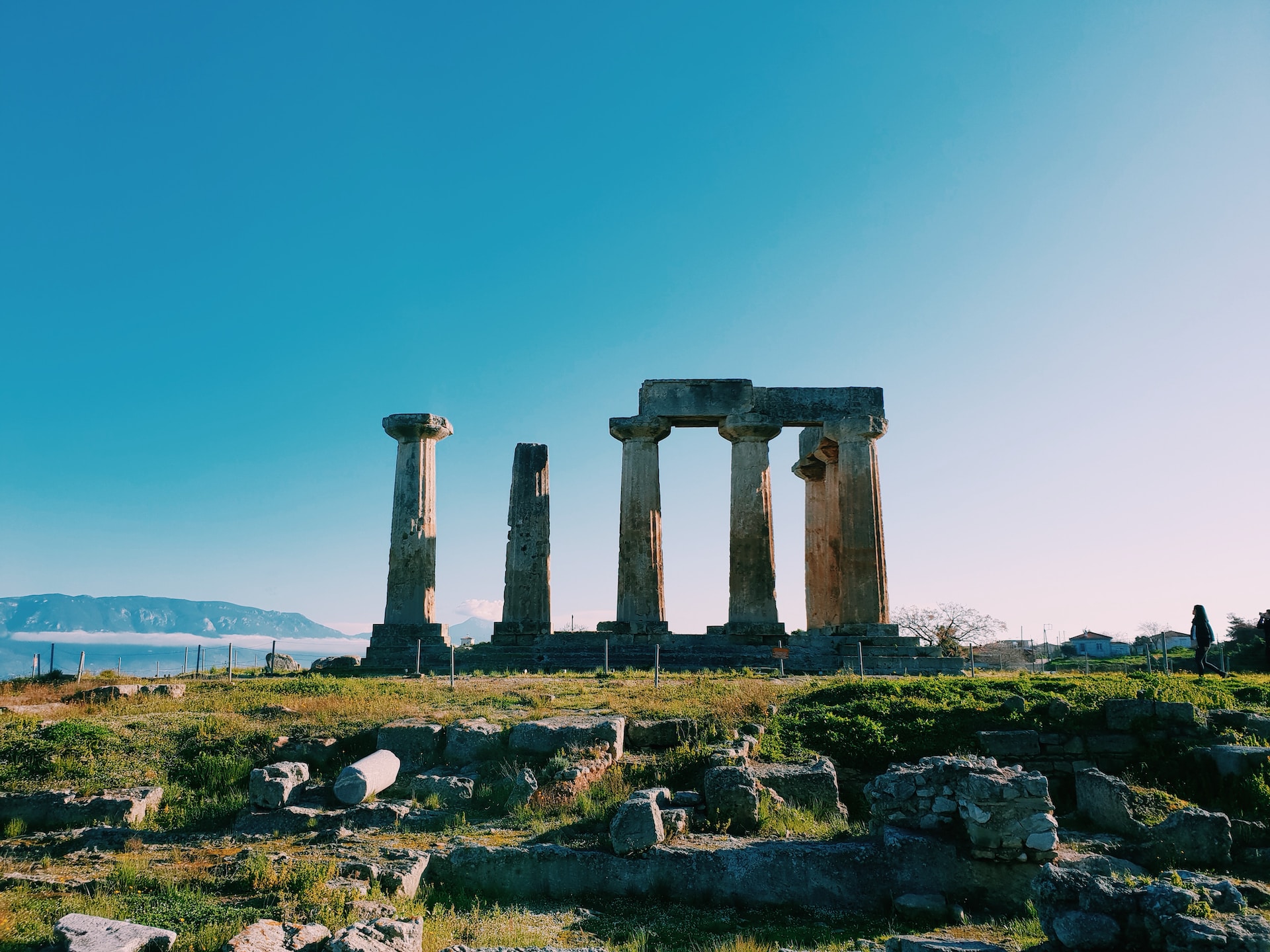 Photo by silversea on Unsplash
Photo by silversea on Unsplash
22. Slavery in Ancient Greece
Unfortunately, slavery was deeply embedded in Greek society. Slaves could be prisoners of war, victims of piracy, or those sold into debt. They worked in various roles, from household chores to mining. You may be surprised to learn though that some slaves were highly educated and served as tutors or clerks.
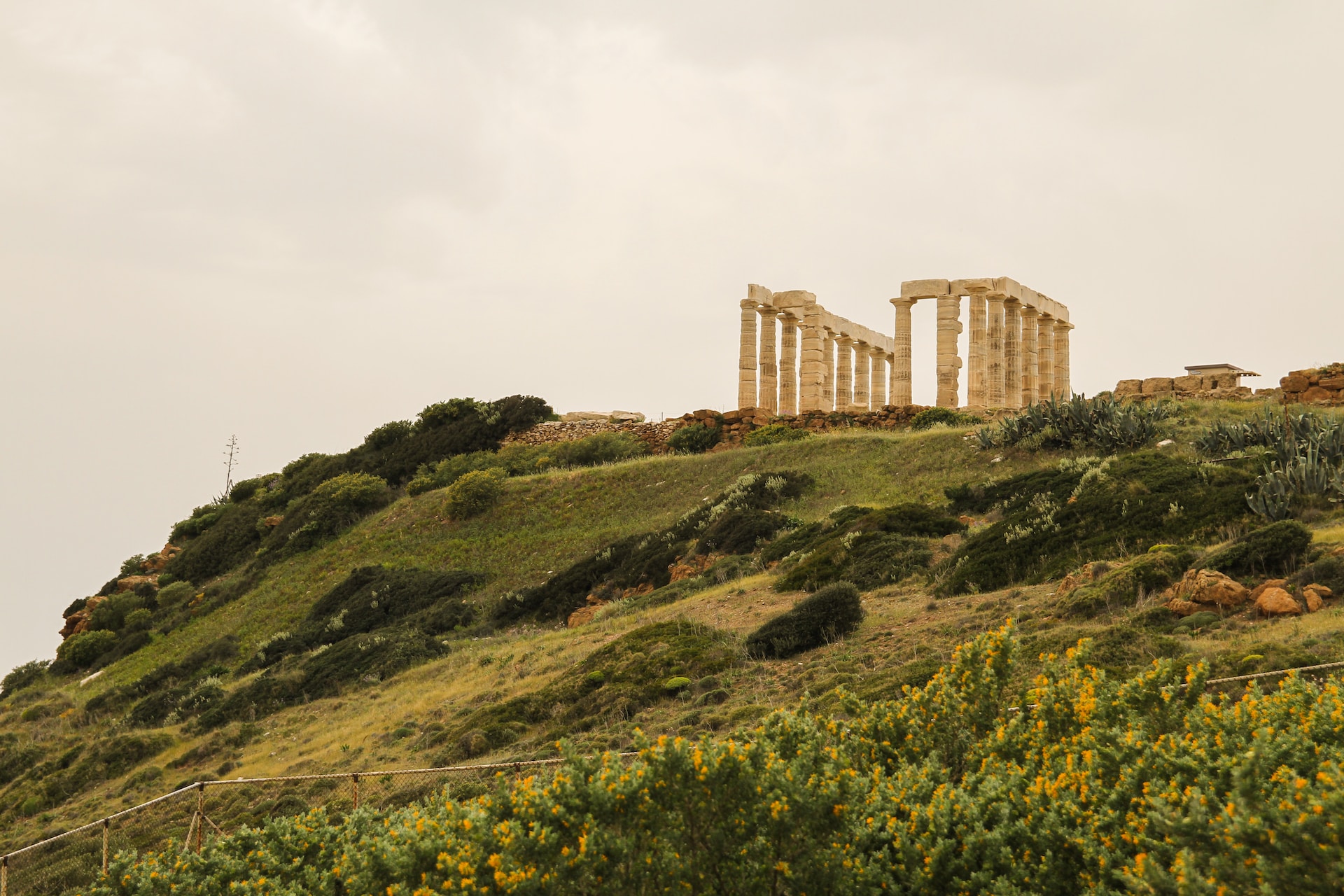 Photo by Black Iris Visuals on Unsplash
Photo by Black Iris Visuals on Unsplash
23. Ancient “Pregnancy Tests”
Greek women, in the absence of modern medicine, turned to some unusual methods to determine pregnancy. One method involved planting barley and wheat seeds, then watering them with a potential mother's urine. If the seeds germinated, it was considered a sign of pregnancy. Although to be fair, we have our own share of strange and unique natural pregnancy test methods.
 Photo by Roman Wimmers on Unsplash
Photo by Roman Wimmers on Unsplash
24. Greek Theatre Masks: More Than Just Props
The iconic theatre masks were not merely decorative. They served multiple purposes. Amplifying actors' voices, portraying different emotions, and enabling quick role changes were just a few. The exaggerated features were also designed to be visible from the back rows of large amphitheaters.
 Photo by Tamara Gak on Unsplash 50
Photo by Tamara Gak on Unsplash 50
25. Hoplite Phalanx: The Terrifying Formation
The what? Hoplite Phalanx is a formation that allowed the Greeks to forever change our idea of warfare. Soldiers, called hoplites, held large shields and long spears, standing shoulder-to-shoulder. This formation made them nearly invulnerable to frontal attacks given the time.
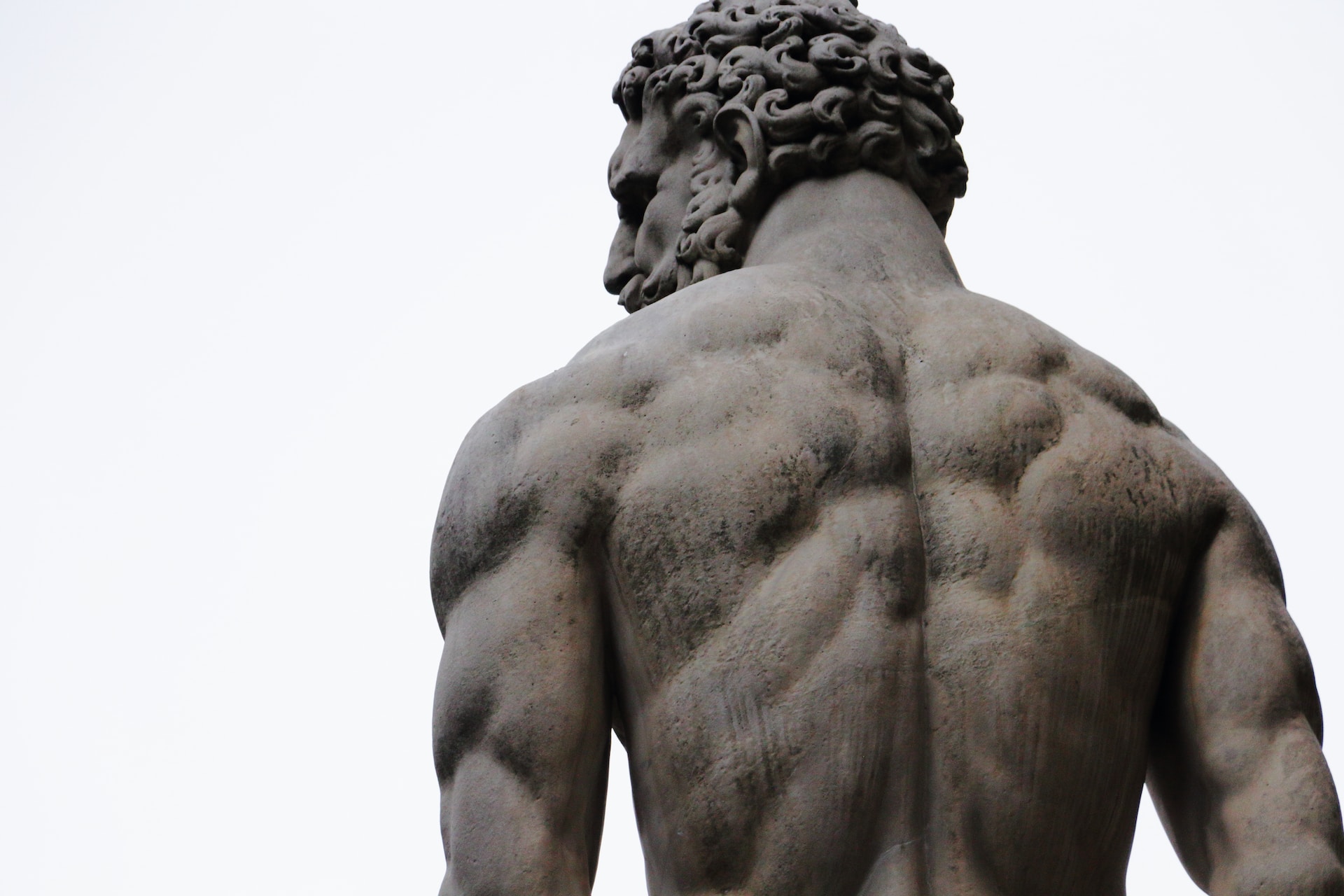 Photo by Simone Pellegrini on Unsplash
Photo by Simone Pellegrini on Unsplash
26. Greek’s Love for Honey
To the Greeks, honey was so much more than just a sweet treat. It was used in cooking in multiple ways: as a preservative, for medicinal purposes, and even in embalming the dead. Mead, an alcoholic beverage made from fermented honey, was also quite popular. They sure knew how to make the most out of such a simple ingredient!
 Photo by Arwin Neil Baichoo on Unsplash
Photo by Arwin Neil Baichoo on Unsplash
27. Ancient Social Networking: The Agora
The Agora was the vibrant heart of Greek city-states, especially Athens. More than a marketplace, it was where citizens gathered to chat, debate politics, philosophize, and catch up on gossip – much like our modern social networking platforms, but face-to-face. Turns out that keeping up with the latest news was popular even back then.
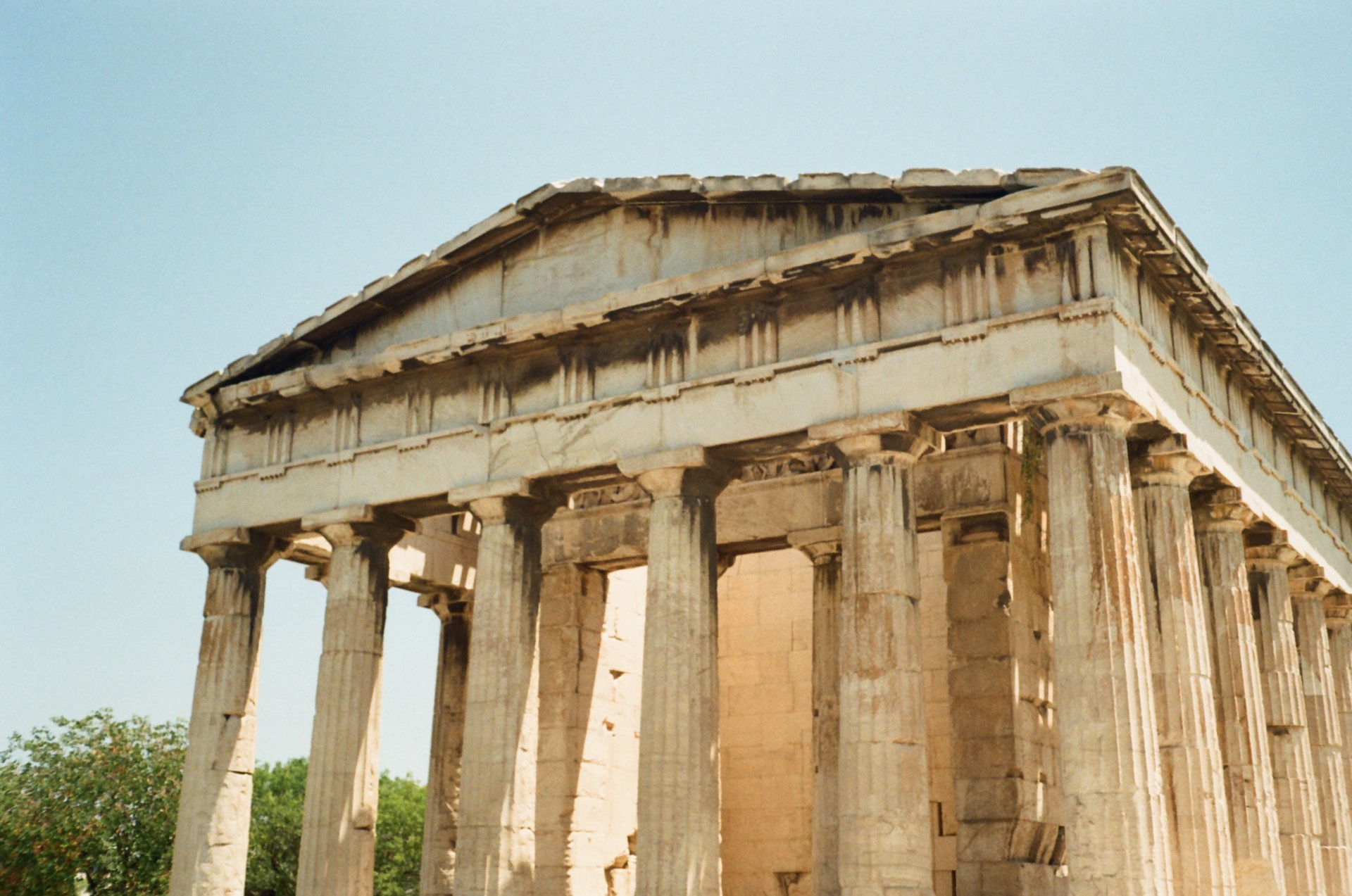 Photo by Cole Redfearn on Unsplash
Photo by Cole Redfearn on Unsplash
28. Greek Children Played With Yo-Yos
Believe it or not, the yo-yo, a childhood favourite toy, was actually around during the ancient times! Greek children played with terra cotta versions of this popular toy as early as 500 B.C. Some vase paintings depict children playing with yo-yos, perfectly demonstrating the appeal of this timeless toy.
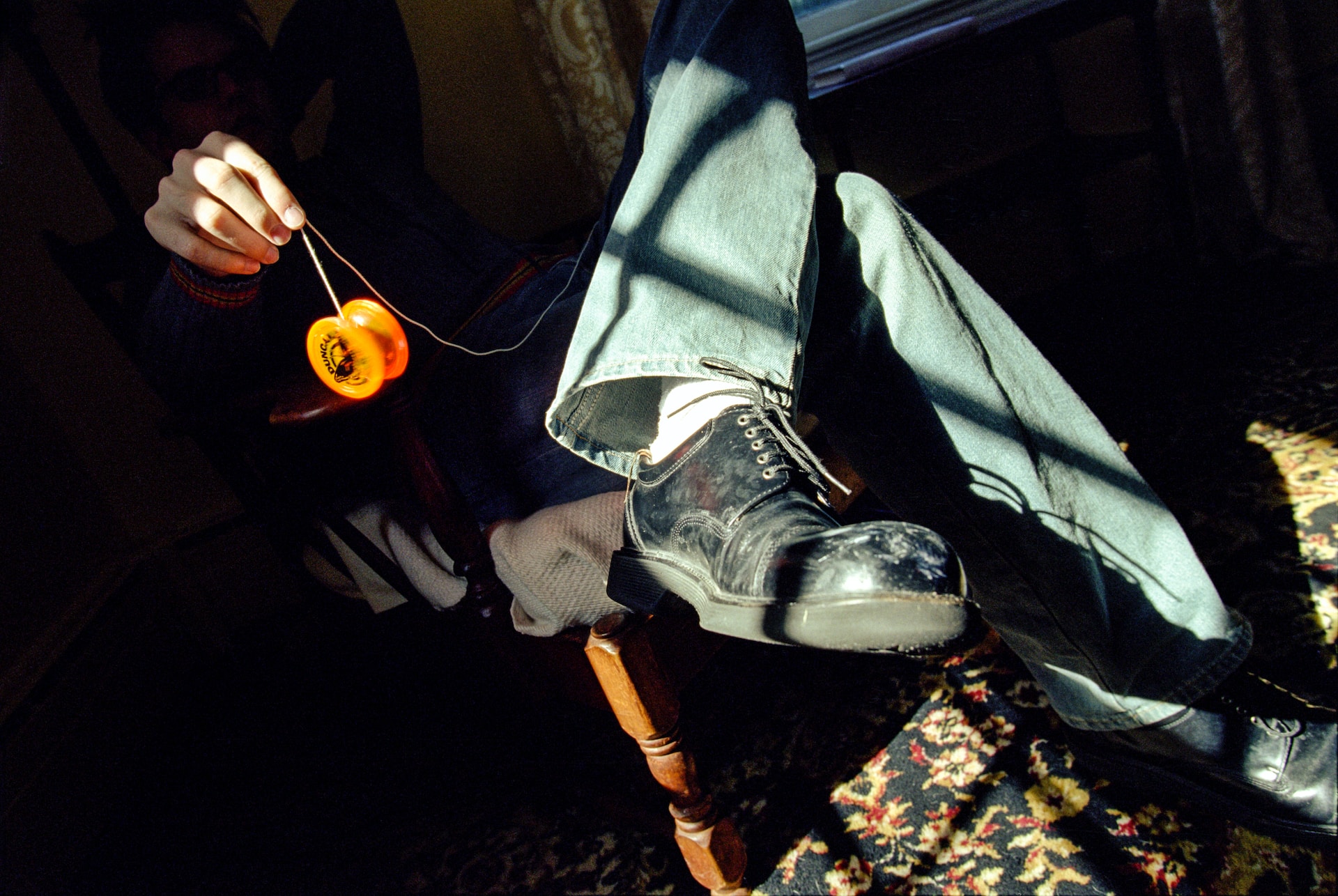 Photo by Mick Haupt on Unsplash
Photo by Mick Haupt on Unsplash
29. Role of Women in Religion
Although women had very limited rights back in Ancient Greece, they still played crucial roles, especially during religious ceremonies. Festivals like Thesmophoria were exclusive to women; they would prepare ritual foods, make sacrifices, and participate in secret rites.
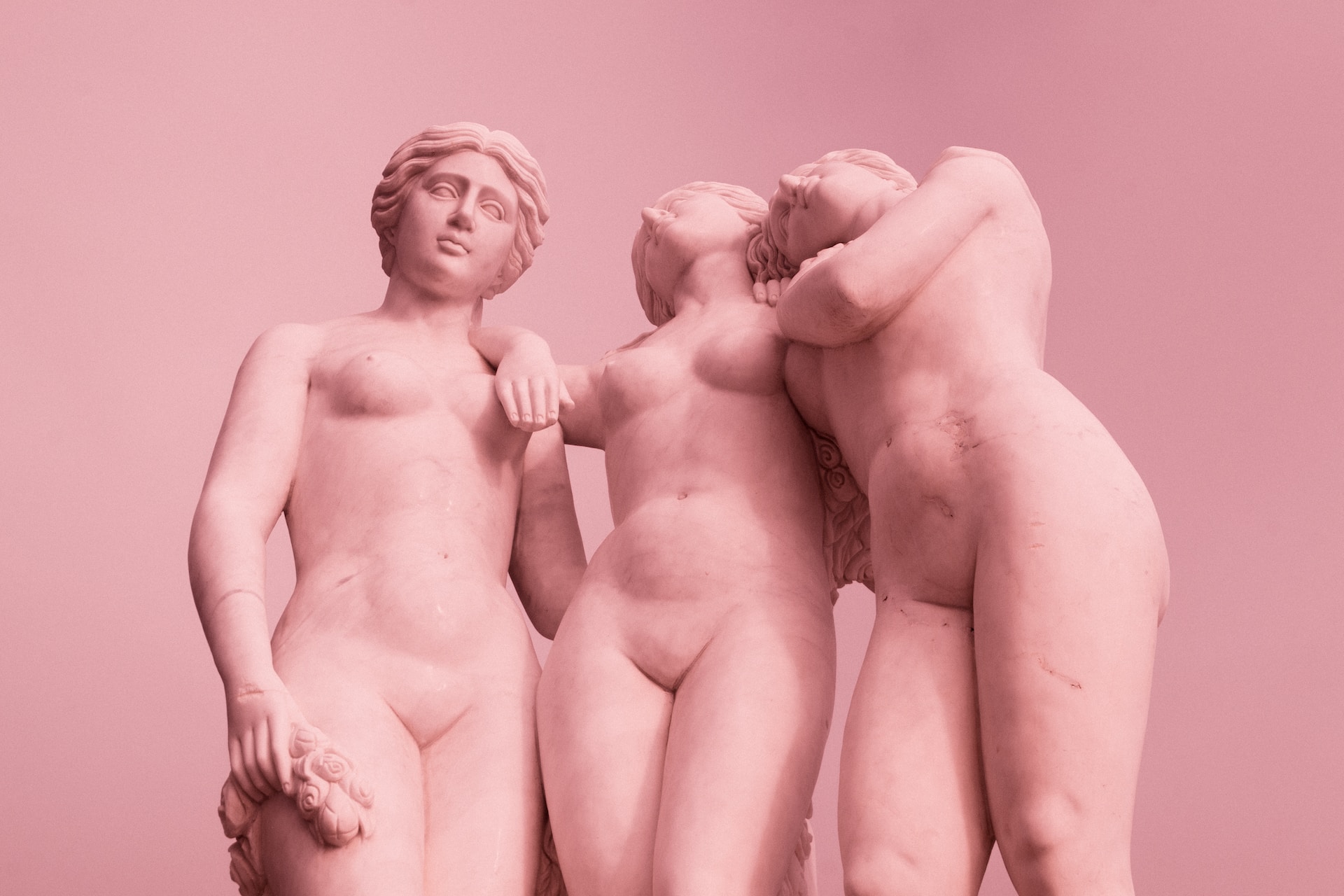 Photo by Allyssa Olaivar on Unsplash
Photo by Allyssa Olaivar on Unsplash
30. The Stigma of Left-Handedness
As with many cultures around the world, being left-handed in Ancient Greece was met with a great amount of suspicion. It was associated with bad omens and untrustworthiness. In fact, Greeks hated it so much, the word left in Greek, “skaios”, also meant awkward or ugly. Sorry lefties.
 Photo by Kelly Sikkema on Unsplash
Photo by Kelly Sikkema on Unsplash
31. The Power of Dreams
For ancient Greeks, dreams were not something to take lightly. They were viewed as powerful omens, divine messages, or foretellings of the future. Renowned sanctuaries, like the Asclepeion at Epidaurus, were frequented by those seeking “dream cures”. Patients would sleep within the sanctuary, hoping to receive healing visions from the god Asclepius. They must’ve had some pretty bad nightmares we’re guessing.
 Photo by Kinga Howard on Unsplash
Photo by Kinga Howard on Unsplash
32. Banned Books: The Fate of Anaxagoras
Think banned books are a modern issue? Think again. The philosopher Anaxagoras was charged and exiled for asserting that the sun was a hot stone and not a deity. His radical ideas challenged established religious views, a dangerous endeavor in ancient times.
 Photo by Tom Hermans on Unsplash
Photo by Tom Hermans on Unsplash
33. The Klidonas Ritual
In the heart of summer, ancient Greek villages witnessed a captivating ritual called Klidonas, celebrated around the summer solstice. This unique tradition was primarily for unmarried women eager to unveil hints about their future spouses. The ceremony began with these women silently drawing "silent water" from a well, emphasizing its uncontaminated purity. Into this water, personal items from the participants were immersed, and the container was left overnight under the open sky, believed to be blessed by the "Drosoulites" or "dew spirits". The next day, items were retrieved from the container, and elderly village women, revered for their wisdom, interpreted each item, providing prophecies about love and future prospects.  Photo by Mayur Gala on Unsplash
Photo by Mayur Gala on Unsplash
34. Peculiar Beauty Standards: Pale Skin
While today’s beauty trends in the Western World often emphasize a sun-kissed glow, in ancient Greece, it was actually the opposite that was ideal. The Greeks valued pale skin above all else. It was associated with leisure and luxury, a sign that one didn’t have to labour under the scorching sun. Women would even use white lead to achieve this look, despite its toxic nature.
 Photo by Riccardo Mion on Unsplash
Photo by Riccardo Mion on Unsplash
35. Sophists: The Original Tutors for Hire
Sophists were intellectual educators who offered teachings in various subjects, including rhetoric and philosophy, for a fee. They were often criticized by philosophers like Plato for allegedly prioritizing money over genuine wisdom.
 Photo by sofatutor on Unsplash
Photo by sofatutor on Unsplash
36. Ostracism: The Ancient Voting Off
Athens had a system called ostracism, where citizens could vote to banish a person from the city for 10 years. Each voter would scratch the name of the disliked individual on a pottery shard. If a name reached a certain threshold, the individual was exiled. Photo by Noah Silliman on Unsplash
Photo by Noah Silliman on Unsplash
37. Milo of Croton: Progressive Strength Training
The legendary athlete Milo was said to carry a newborn calf daily. As the calf grew, so did Milo's strength, representing an early form of progressive strength training. He supposedly did this until he could carry a full-grown bull.
 Photo by Victor Freitas on Unsplash
Photo by Victor Freitas on Unsplash
38. Kottabos: A Popular Drinking Game
Entertainment at the symposia wasn’t always limited to just intellectual discourse. The Greeks enjoyed a drink as much as the next guy! Kottabos was a popular game back then where participants flung wine lees at targets to knock them down, all while maintaining their reclined, relaxed position.
 Photo by Giovanna Gomes on Unsplash
Photo by Giovanna Gomes on Unsplash
39. Herms: More Than Just Statues
These statues, primarily featuring the god Hermes, were more than decorative. Positioned at crossroads and doorways, they served as markers and protectors. However, they were also famous for their explicit anatomical details, reflecting fertility connotations.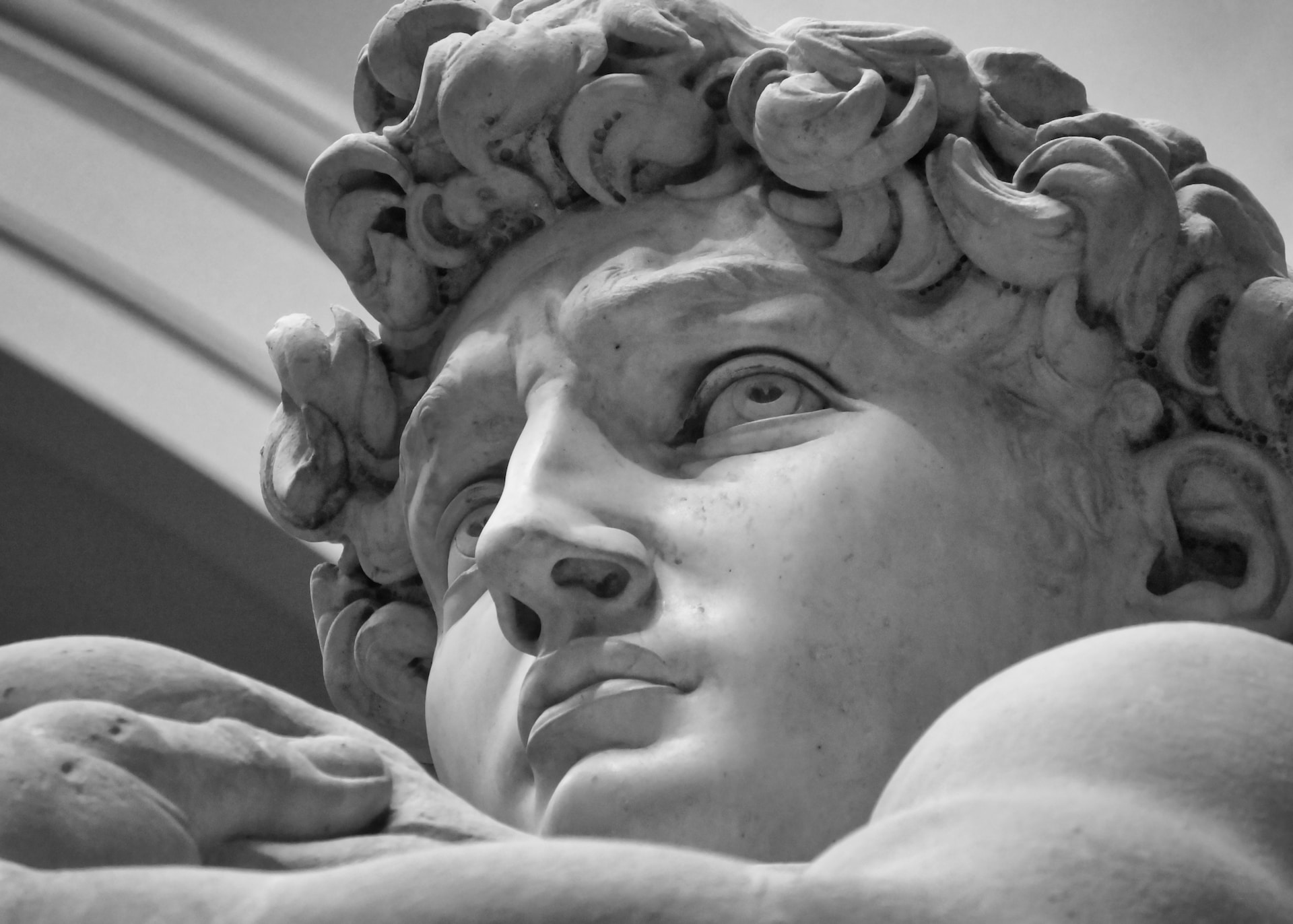 Photo by Sean Robertson on Unsplash
Photo by Sean Robertson on Unsplash
40. The Panathenaic Festival
One of Athens' grandest festivals was the Panathenaia, honoring the goddess Athena. It comprised of musical contests, athletic competitions, and a grand procession wherein a new peplos (robe) was presented to the deity's statue.
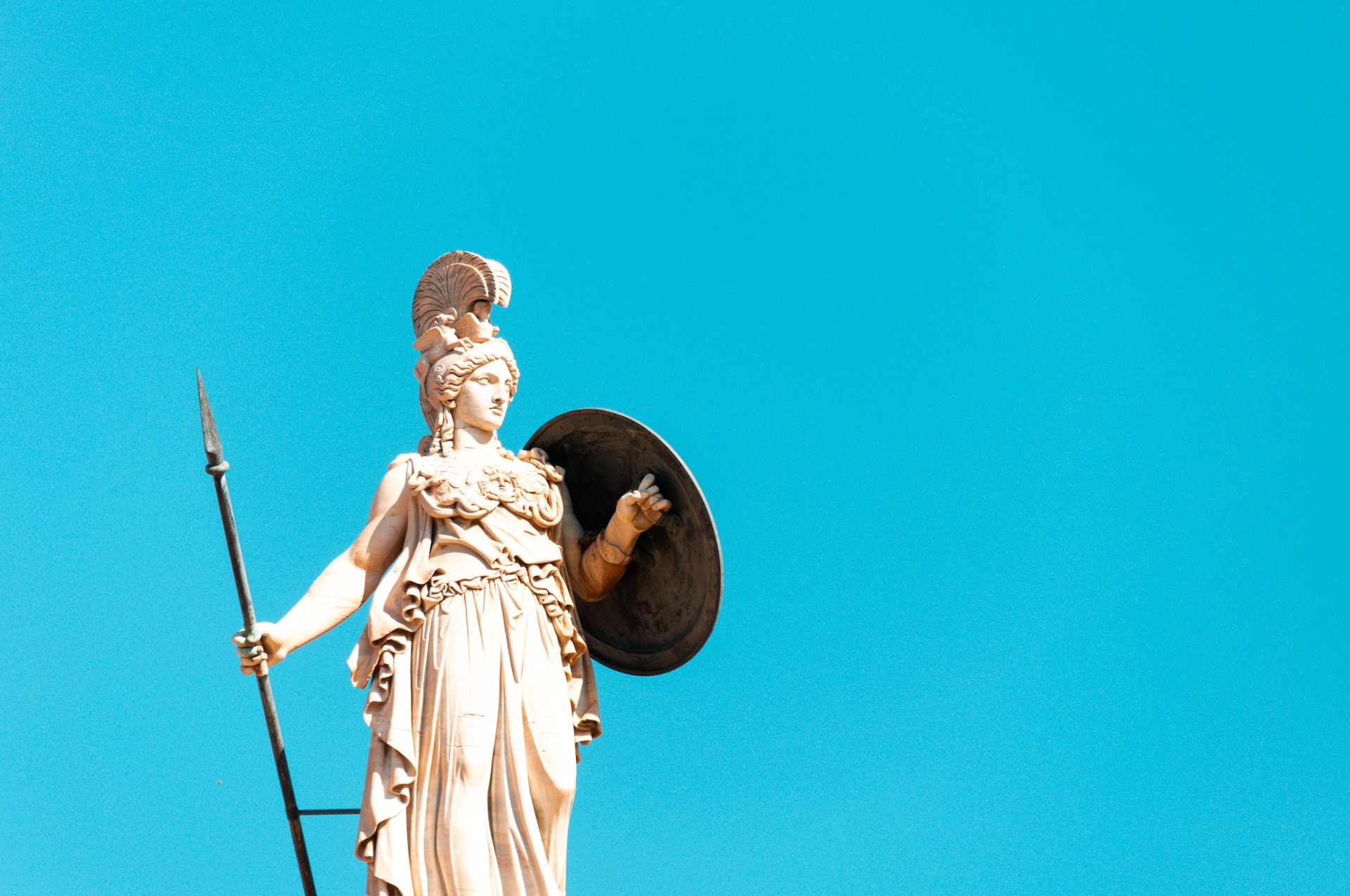 Photo by Hert Niks on Unsplash
Photo by Hert Niks on Unsplash
It’s always fascinating exploring how the ancient world is so vastly different from our own. Did any of these 40 cool facts about ancient Greece shock you? But thanks to their habits and intellectual pursuits, the Greeks have truly left a permanent mark on the tapestry of human history. It’s thanks to their inventions and ways that our society is the way that it is!







